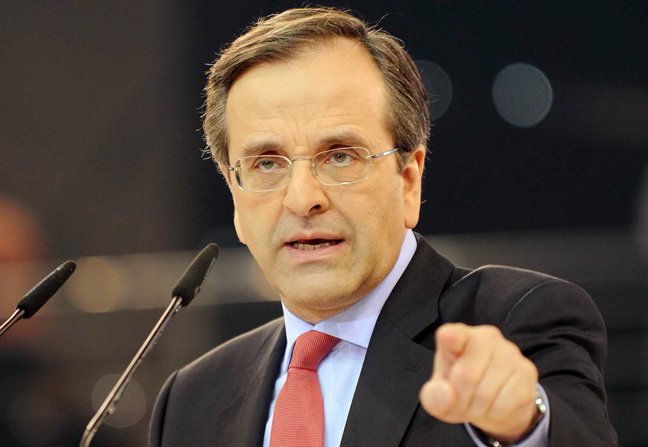Greece and Europe proved wrong all those who bet on their failure and dissolution, Prime Minister Antonis Samaras said in his brief review of the Greek EU Presidency, during the closing ceremonies held at Zappio Hall on Monday night.
According to AMNA, Greece proved them all wrong, achieved a fiscal clean-up, stabilised the country΄s position, implemented reforms, accessed the markets again and is now exiting the long-term recession, he stressed.
In his review, the premier said that the presidency strengthened the Economic and Monetary Union integration and gave priority to the banking integration so the inherent weaknesses of the euro could be dealt with; economic stagnation was fought; and, most importantly, the Greek EU Presidency made growth and job opportunities the main political issue Europe is facing at present.
Greece, which only used 40% of the available funds for the Presidency, promoted the protection of European borders, he said, and the management of migration flows, with a humane approach. Guidelines for the legislative and business planning in justice and internal affairs were set – the Presidency΄s major achievement, he noted – while migration has now become an inseparable part of the EU΄s foreign policy.
Among other achievements, the premier mentioned actions in maritime policy, especially as Greece holds an important position in global shipping and also has the longest shoreline in the EU, which are also the EU΄s external sea borders.
Concerning an agreement among EU members to establish means of securing the external, maritime borders of the EU, which Greece worked on, Samaras said, “We will stand by the next, Italian Presidency, which will assume the drafting of an action plan, and this is something I will note in Strasbourg on Wednesday, at the closing ceremony there of the Greek EU Presidency.”
The prime minister concluded, “The Greek EU Presidency coincided with the European Parliament elections. European citizens did not vote against the European Union, but requested more and better Union. They turned down the Europe of statistics, impersonal bureaucratic automation and one-sided economics, demanding a Europe that is at the same time visionary and realistic.”





